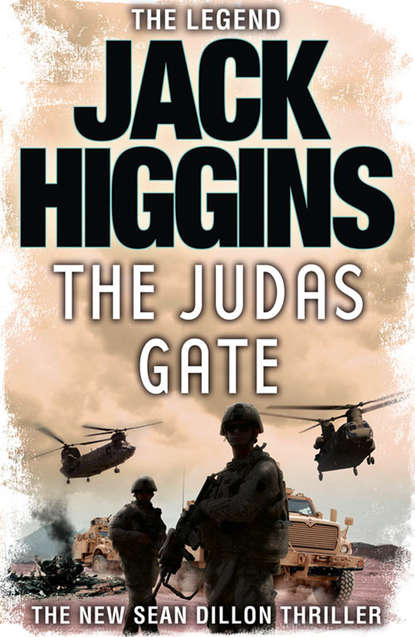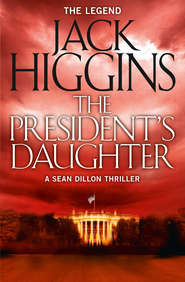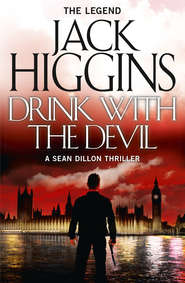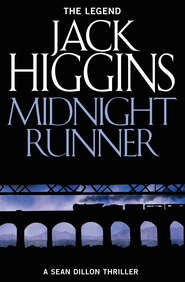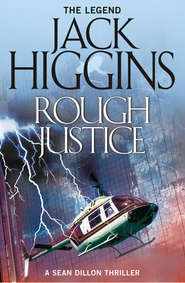По всем вопросам обращайтесь на: info@litportal.ru
(©) 2003-2024.
✖
The Judas Gate
Автор
Год написания книги
2019
Настройки чтения
Размер шрифта
Высота строк
Поля
‘Don’t go by looks, idiot. Holley’s a nihilist. That’s someone who believes nothing has any value and so he kills without a second of regret. That includes you.’
‘I’ll bear it in mind. When do you want this?’
‘A couple of days. Do what you can.’
Shah hung up. Now, he thought, what to do about Shamrock. He’d been shocked to hear the name from Hakim. He checked his watch. The stupid bastard was still up there at thirty thousand feet for at least another couple of hours. Better to wait and try to contact him at the Talbot office. He got up from the bench and walked quickly across the campus towards the university buildings.
At that same moment, Shamrock was sitting in the first-class compartment of a British Airways jumbo-jet flight from Cairo. His name was Justin Talbot. He was forty-five and looked younger, favoured dark cropped hair and a slight stubble to the chin, the fashion of the moment. He wore jeans, a light open-necked khaki shirt and a dark blue linen jacket. His face was heavily tanned, as if he’d been out in the sun a lot, which he had, and had an aristocratic look to it.
Members of the cabin crew had earlier noted that his English had a public school edge to it, and he spoke with a cynical good humour that they’d found as intriguing as the fact that he was described on the passenger list as Major Talbot.
One of the girls approached and said, ‘It always gets boring with so few passengers. Not much to do.’
‘Nobody’s got any money at the moment. You’re lucky to have any passengers.’
She smiled. ‘I suppose you’re right. We’ll be landing in an hour or so. You’ll be glad to stretch your legs, I bet. It’s a long trip, Cairo to London.’
‘Actually, I started in Peshawar yesterday. Stopped off in Cairo on business, then joined you.’
‘Pakistan! I hear it’s bad on the North-West Frontier these days. Are you in the army, Major?’
‘Not any more. Twenty-odd years was enough. Grenadier Guards. I did a certain amount in Northern Ireland, both Gulf wars, Bosnia and Kosovo, then two tours in Afghanistan. I was lucky to get out of that in one piece. When I was shot in the right shoulder,’ he smiled, ‘I decided that was it and took my papers.’
He didn’t mention the Military Cross he’d earned in Afghanistan, and the years with the SAS and the Army Air Corps. The young woman nodded seriously. ‘You’ve done your bit, if you ask me. What do you do now?’
‘I work for the family firm, Talbot International. We sell trucks to the Pakistan Army, Jeeps, second-hand armoured cars and helicopters.’ He smiled. ‘Have I disappointed you?’
She shook her head. ‘The other side of war.’ She hesitated. ‘Do you miss it? The dark side, I mean?’
‘Let’s say there’s nothing quite like it. There’s no drug that could possibly match the force, the energy, of the killing time in which you’re immersing yourself. War itself is the ultimate drug.’
She looked a bit shocked. ‘Well… business must be booming, with the war spilling over from Afghanistan. Can I get you a drink?’
‘Large vodka would be good, with iced tonic water and a twist of lemon.’
She was back in three minutes and handed it to him. ‘Enjoy.’
He drank half of the drink straightaway and sat there, suddenly yawning. Since Lahore yesterday morning, he’d only had four hours’ sleep. He finished the drink, put the glass down, tilted his seat back. A hell of a trip, and Afghanistan had been particularly rough, but bloody marvellous. The buzz of action never failed to thrill him. It was what he’d missed when he left the army.
You could make millions out of the sale of second-hand military equipment in Northern Pakistan—but there was a lot more money to be made from dealing in illegal arms. Even respectable firms were at it, and nobody was more respectable than Talbot International. Its Chairman, General Sir Hedley Chase, presented the face of integrity itself at the small but elegant office in Curzon Street. The real business took place in Islamabad, where dozens of firms jostled one another for advantage.
It had been only a step from selling illegal arms to providing training in their use. He’d enjoyed every moment of that in the mountains over the border in Afghanistan, and then it had been only logical to take the next step—from training the Taliban to leading them in battle. He’d immediately been seized by the old thrill, and he felt no guilt at all.
The surprise had been when Al Qaeda had discovered what he was up to, and not only approved, but insisted he continue. The strange thing was that there had been a thrill to that, too. It wasn’t as if he needed the money. It was all part of a wonderful, lunatic madness. Anyway, right now he needed rest and recreation. It would be nice to see his mother again. He hadn’t kept in touch much this time. It was better to use mobile and satellite phones sparingly these days, unless they were totally encrypted and encoded. Too many people failed to realize that every conversation you made was out there somewhere and capable of being retrieved.
He wondered if his mother had made one of her rare visits to the family estate, Talbot Place, in County Down. Her own mother, Mary Ellen, had died the previous year, but his grandfather, ‘Colonel Henry’ to the servants, was still alive at ninety-five.
Soldier, lawyer, politician, Member of Parliament at Stormont, and a Grand Master in the Orange Lodge, Colonel Henry was a resolute defender of the Protestant cause who had loathed Roman Catholics—Fenians, as he called them—all his life. Now in his dotage, he was surrounded by workers and house servants who were mainly Catholic, thanks to Mary Ellen, a Protestant herself, who had employed them for years. Justin Talbot’s mother despised the man.
Talbot yawned again and decided that if his mother had gone to Ulster, he would fly across himself, possibly in one of the firm’s planes. He could use a break. He closed his eyes and drifted off.
At that moment, his mother, Jean Talbot, was crossing a hillside high above Carlingford Lough, the Irish Sea way beyond. A seventy-one-year-old woman, slim and fit and young for her age, in both looks and energy, as the Irish saying went, was wearing an Australian drover’s coat, heavy boots, a cap of Donegal tweed and carrying a walking stick. The house dog, Nell, a black flat-coat retriever, was about her business, running hither and thither. Jean reached her destination, a stone bothy with a bench outside. She sat down, took out a packet of cigarettes, and lit one.
The sun shone, the sky was blue and the morning wind had dropped to a dead calm. This was an amazing place with an incredible backdrop, the Mourne Mountains. Far down below was the village of Kilmartin, and Talbot Place, the splendid old Georgian house that had been the family home for two hundred and fifty years, the house in which she had been born.
She stubbed out her cigarette carefully, stood up, whistled to Nell and turned. It was good to be back and yet, as always, she already felt restless and ill at ease; as usual, her father was the problem. During the Second World War, with him away and her mother in charge, she had been educated at a local Catholic boarding school run by nuns who accepted day-girls and didn’t mind a Protestant or two. She had never known her father and was terrified of the arrogant, anti-Catholic bully who returned after the war and was outraged to find his daughter in the hands of nuns, and ‘bloody Fenians’ all over the estate.
Mary Ellen’s quiet firmness defeated him, as did the good humour of his tenants, who smiled and touched their caps to Colonel Henry, convinced, as Jean Talbot realized as she grew up, that he was a raving lunatic. The nuns succeeded with her so well that she was accepted by St Hugh’s College, Oxford, to study fine art.
To her father, busy with the law and politics at Stormont, it was all a waste of time, but she had enough talent to then be accepted by the Slade School of Fine Art, University College, London, after Oxford. Mary Ellen hugged her in delight, but her father said it was time she settled down and gave him an heir.
Her answer was to get pregnant by a sculptor named Justin Monk, a Roman Catholic separated from his wife who’d refused him a divorce on religious grounds. Shortly after the birth, he’d been badly injured in a motorcycle accident. Jean was able to visit him once and show him the baby and promised to name it after him. He died soon afterwards.
When Henry Talbot and Mary Ellen came to visit her in her London lodgings, he had looked at Justin in his cot and destroyed any hope his daughter might have had left for a future relationship with her father.
‘A bastard, is that the best you can do? At least he’s a Protestant; I suppose that’s something. I’ve got things to do. I’m meeting people at Westminster. I’ll leave you to your mother.’
After he had gone, Mary Ellen said, ‘is he a Protestant?’
‘Justin begged me to have him baptized in the faith. What could I do? He was dying. Do you hate me for it?’
‘My darling, I love you for it. It was the decent thing to do.’ She embraced the baby. ‘But I’d make it our secret, if I were you. If they had even a hint of it on the estate, it would be all over Kilmartin.’
‘All over County Down,’ Jean had said. ‘And what about my son?’
‘Don’t tell him, either. It’s a burden to tell a child and expect him to hold it secret. One day in the future, when you think it’s right, you can tell him. So what will you do now?’
‘I intend to continue my work. At the Slade they feel that I have a gift for portraiture, and I intend to concentrate on that.’
‘Excellent, but you’ll need a home. I’ll stay a bit in London and we’ll find you a house. In Mayfair, I think, and we’ll need a housekeeper and a nanny.’
‘But what will he say?’
‘He’s left everything to me. We can afford it, dear. I don’t think you’ve ever appreciated how wealthy you and Justin will be one of these days, whether you like it or not. Talbot money is old money—and you’d be surprised how much property we own in the West End of London. In fact, now that I think of it, there’s a superb Regency house on Marley Court off Curzon Street, very convenient for Park Lane and Hyde Park. Let’s take a look.’
Marley Court it was, and her beloved son had grown up there, and gone to school as a day-boy at St Paul’s—she couldn’t bear the thought of sending him away. His visits to Talbot Place were frequent, of course, particularly during the long summers, for his grandmother adored him and his grandfather grudgingly admitted he was a fine rider.
He was also popular with the estate workers and the locals, but their respect for Mary Ellen ensured that anyway. Through the long, hard, brutal days of the Troubles, Talbot Place had remained inviolate because of her. It was remarkable when you considered that most Catholics in the area were Nationalists, and the Provisional IRA was so powerful that the countryside from Warrenpoint as far as Crossmaglen in County Armagh was designated bandit country by the British Army.
Talbot Place could have been burnt to the ground, not a stick nor stone left standing, and certain extreme elements would have done exactly that, but local opinion stayed their hand. Half the village was employed on the estate, and Mary Ellen and the boy were inviolate—which also meant that Colonel Henry’s life was spared as well; though it wasn’t deserved, many people would say.
There had been a problem in August 1979, when her son was fifteen, when the British Army had suffered its worst defeat in the Troubles, that terrible ambush only a few miles away at Narrow Water, near Warrenpoint. That many of the local men were IRA did not surprise her. It meant that some of her workers would be, too. But she had been shocked to hear that a nineteen-year-old stable boy named Sean Kelly, son of Jack Kelly, publican of the Kilmartin Arms and a great friend of her son’s, had been killed in an exchange of fire with wounded soldiers at Narrow Water.
Justin had been at Talbot Place for the summer holidays and she had joined him for a couple of weeks before returning to London for the start of the autumn term at school. He had been terribly upset at the death of his friend. There was no question of them attending the funeral; even Mary Ellen admitted that. The deaths of all those Highlanders made it impossible, and yet Justin had gone of his own accord, had stood at Sean Kelly’s graveside, had been hugged and thanked by all the Kellys, and admitted to the clan. The priest, Father Michael Cassidy, had also blessed him for it.
The confrontation at Talbot Place had been terrible, such was Colonel Henry’s rage. He’d slapped Justin across the face, called him a damn traitor, and Jean had pulled her father off and called him a bully and a bigot. Justin had shouted at him, called him a Prod bastard, and said he would join the IRA if he only could. Every servant in the house had heard it. Jean Talbot and her son left for London within the hour. There was a long break for a while. Eventually, Mary Ellen smoothed things over, but Jean visited rarely after that. Her gradual success with her painting, the fact that she’d been commissioned to do a portrait of the Queen Mother, meant nothing to her father.
With Justin, it was different. He was, after all, the heir, and when he chose Sandhurst Royal Military Academy instead of university, and embarked on an army career, the Colonel had been delighted.





